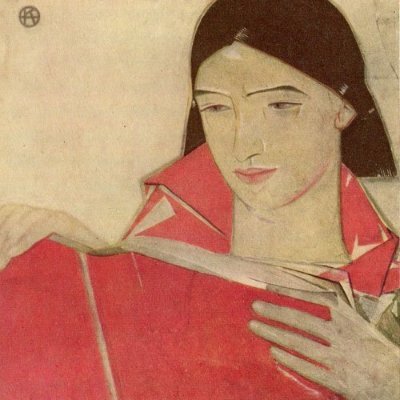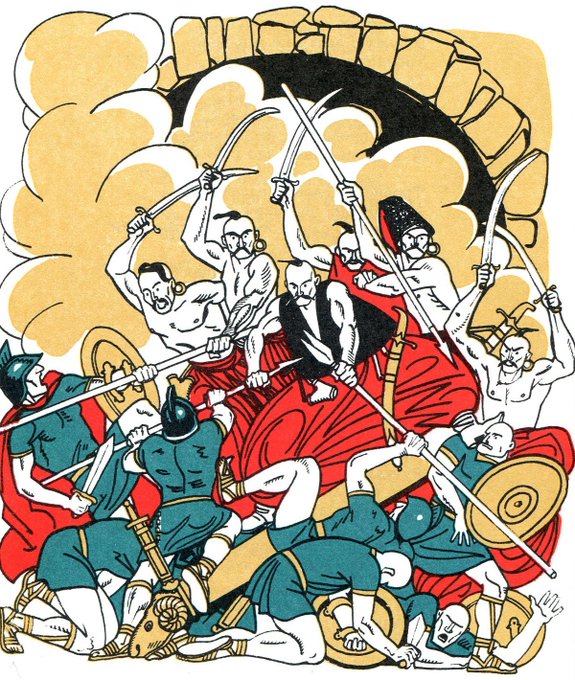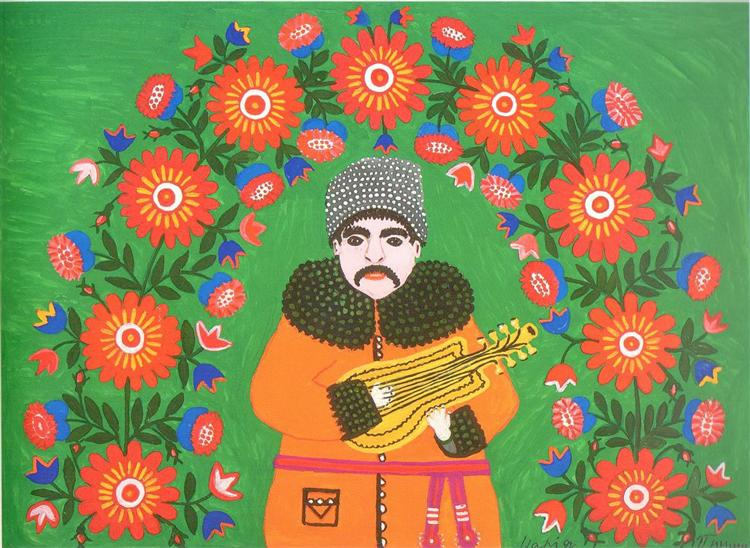Portrait of an artist Manzara Agaeva (born Azerbaijan) made in 1969 by 🇺🇦 non-conformist artist Zoya Lerman (1934-2014). In the 60s Lerman created an informal group of like-minded people who would oppose the socialistic realism approach.
Today I will tell more about The Eneida (Aeneid) made by Ivan Kotlyaresvky in 1798. With fantastic illustrations by Anatoly Bazylevych, this book was published in the 1960s and became one of the most essential books in 🇺🇦 culture. With the help of @ChytomoE I'll tell you why.
Although Halyna Mazepa (1910-1995) lived in Ukraine as a kid and had to migrate because of her father, who was prime minister of the Ukrainian People's Republic, her main topic in art was 🇺🇦 culture and images of women. Thread about her life in immigration and Venezuela.
One of the most important paintings of Ukrainian cubo-futurism is 'Tuning saws', 1927. Made by Oleksandr Bohomazov (1880-1930). He has been forgotten during the soviet period until the 1960s, his works were hidden.
Collection of the @NAMU_120
Tomorrow I will tell you more about his impact on Ukrainian culture, his poetry, and Shevchenko as a symbol in art.
"Taras Hryhorovych Shevchenko Arrives From His Exile to Flowering Ukraine" (1968) by Maria Primachenko
While residing in Saint Petersburg, Shevchenko made three trips to Ukraine in 1843, 1845, and 1846. The difficult conditions 🇺🇦 had made a profound impact on him, in 1844 decided to capture historical ruins and cultural monuments in an album of etchings – Picturesque Ukraine.
Russian art critics who had access to the KGB archives note that Malevich answered that he was Ukrainian when asked about his nationality.
'Self Portrait', 1910
Boris Kosarev (1897-1994) was one of the most important Ukrainian Avantgarde artists. He was born, lived, and died in Kharkiv. Also, he was the photographer at the filming of "Earth" by Oleksandr Dovzhenko. See his amazing works and read the thread 🧵
Oleksandr Saenko (1899-1985) "Portrait of a girl with flower" (1925). He was a student of Vasyl Krychevsky, and art historians see the influence of the Boychukists school. Also, he was deaf-mute, so art and vision were his only way to communicate with the world.
Ben Benn was born Benjamin Rosenberg in 1884 in Kamyanets Podilsk, 🇺🇦. His family chose to immigrate to the United States in 1899 to, and he grew up in New York City.
'Cowboy and horse' (1917) from @whitneymuseum , and 'Dice Game'
















